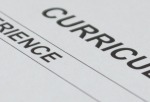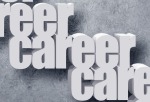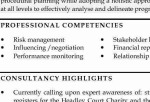Letters and Emails
To accompany an executive CV, the letter should effectively connect the reader with quantifiable, perfectly chosen accomplishments that prove your worth. It is a document that explains how you would add value to their organisation and subsequently what sets you apart from other potential candidates.
Today’s job market is so competitive that you must know how to market yourself successfully. Many people make the mistake of using standard cover letters in their job applications. You might feel that your CV speaks for itself, and you don’t need to send a cover letter with your application.
Be aware of these common mistakes when writing that all-important cover letter!
What should a job cover email include? Well, one thing it doesn’t necessarily have to include is the usual salutation. As with most e-mails, you can start by getting right to the point. (Needless to say, you don’t have to include a header, either). Your first sentence should be a brief statement about why you’re writing the e-mail (you’re applying for the job) and how you found out about the position.
Getting ready to quit your job? Struggling to know what to write to your HR department? Look no further.
Begin working on the letter soon after the interview. Ideally, after-interview thank you letters should be sent within 24 hours of the time the interview was conducted. This helps to ensure that the employer matches the name with the face.








